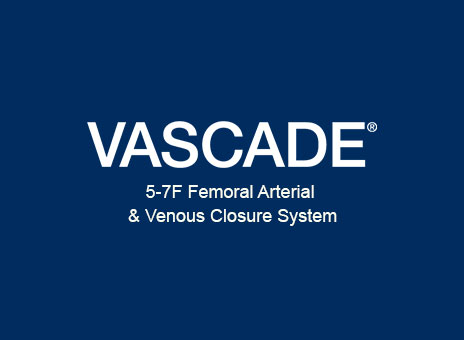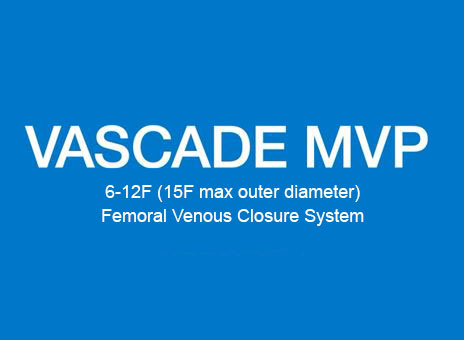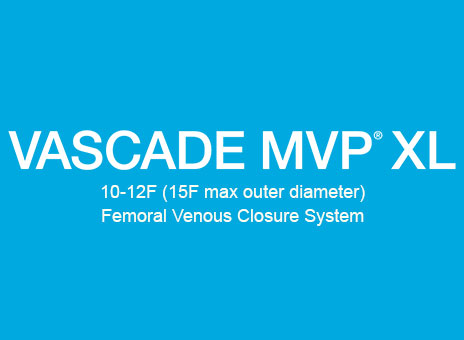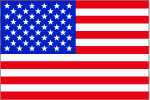Vascular Closure
Rapid hemostasis for arterial and venous access sites
Our portfolio of vascular closure products provides rapid hemostasis for interventional and electrophysiology procedures to help clinicians reduce the risk of complications, improve patient satisfaction, and enable same day discharge.
-500x574.jpg?as=0&w=641&hash=227BE64A6462F619AADDFFECE87364E1)
• Enables same day discharge following AF ablation with VASCADE MVP® and VASCADE MVP® XL venous vascular closure systems (VVCS)
• Reduces the risk of access site complications with VASCADE® vascular closure system (VCS), as demonstrated in the RESPECT Clinical Trial1
• VASCADE family offers an outcomes-based risk-sharing VASCADE Performance Guarantee program – Sharing Risk by Sharing Costs™

VASCADE®
The only closure device proven safer than manual compression in a randomized clinical trial with zero major complications.1,2

VASCADE MVP®
Elegantly simple and easy to use, with 0% major complications in 1,223 patients in 5 EP clinical trials.3-7

VASCADE MVP XL®
Simply Bigger with 58% more collagen and a 9% larger disc compared to VASCADE MVP®.
Fellows Development
Same Day Discharge
2. IFUs and / or SSEDs of commercially available leading brands (VASCADE®, AngioSeal®, Mynx®, Perclose™, Starclose™, Exoseal®). Major complications defined as major access site closure related complications per limb through follow-up period.
3. Natale A, et al. Venous vascular closure system versus manual compression following multiple access electrophysiology procedures: The AMBULATE Trial. JACC Clin Electrophysiol 2020; 6(1):111-124.
4. Al-Ahmad A, et al. Results from the prospective, multicenter AMBULATE-CAP trial: Reduced use of urinary catheters and protamine with hemostasis via the mid-bore venous vascular closure system. VASCADE MVP following multi-access cardiac ablation procedures. J Cardiovasc Electrophysiol 2021. 32(2): 191-99.
5. AMBULATE Same Day Discharge Registry Retrospective Study: NCT04538781.
6/7. Eldadah ZA, et al. Same-day discharge following catheter ablation and venous closure with VASCADE MVP: A post-market registry. J Cardiovasc Electrophysiol 2022. https://doi.org/10.1111/jce.15763 NCT04203329.
 Select Language
Select Language  English (Canada)
English (Canada)  English (Other Regions)
English (Other Regions)  French
French  German
German  Italian
Italian  Japanese
Japanese  Russian
Russian  Spanish
Spanish  Chinese
Chinese 
